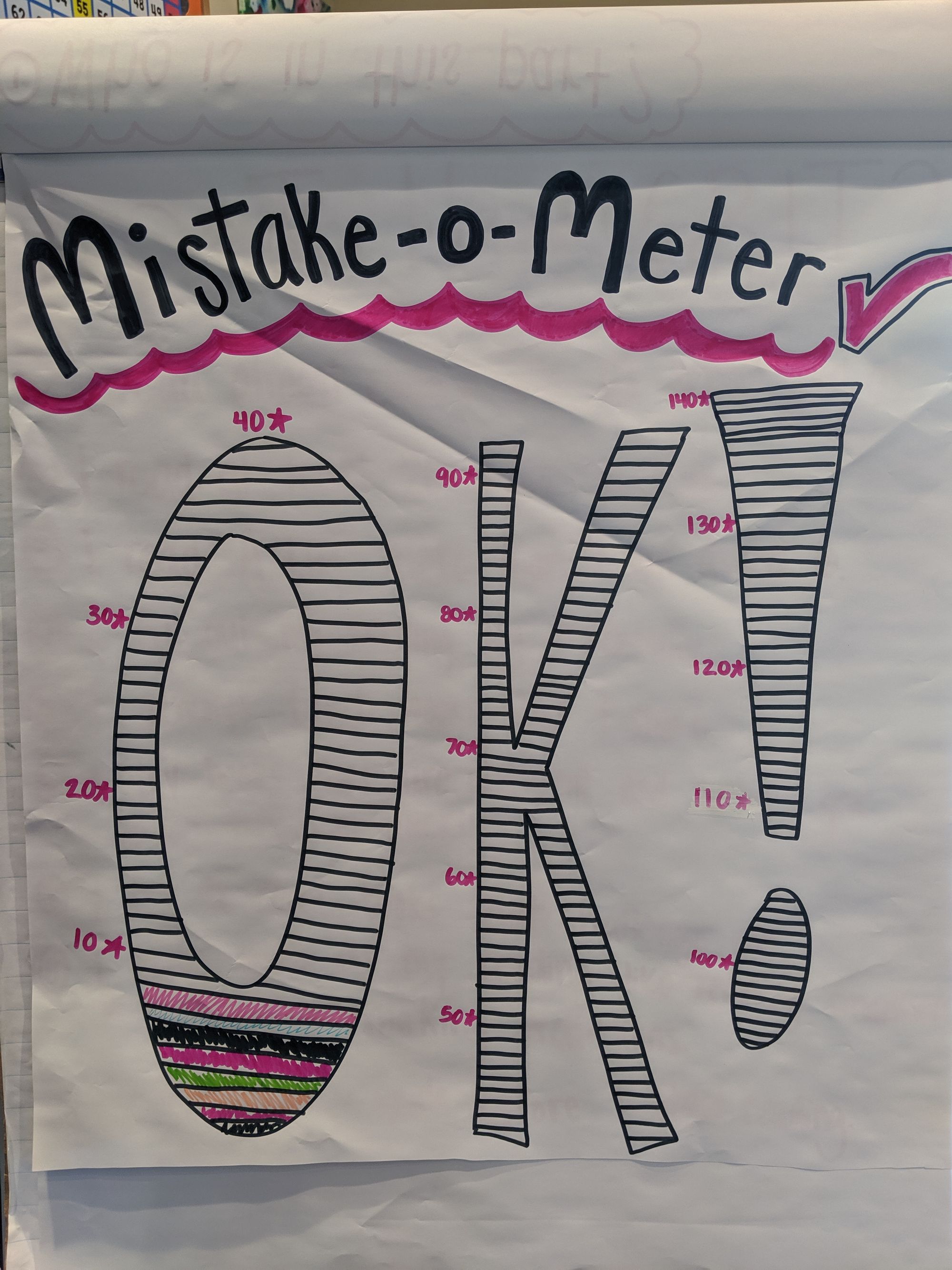It's been a while since I've written a blog post. The school year is in full swing, and it is absolutely exhausting and rewarding all at the same time. We've had plenty of challenges and successes in 3rd grade.
While we've been figuring out our classroom community and working hard to grow as academics, I've noticed something: My kids are NOT OK with mistakes.
Even the smallest of mistakes sends them into a panic. It's like they feel unworthy after making a mistake.
Of course, as adults we know that mistakes are an inevitable part of life, and they can actually help our brains to grow stronger. We learn from our mistakes and grow as individuals.
I had spent some time talking to my students about this concept of mistakes being OK, and our mindsets seemed to get a little more forgiving in the classroom. But it wasn't enough. We were still panicking when we multiplied wrong, read a word incorrectly, or just forgot expectations or directions.
I wanted a concrete way for students to track and celebrate their mistakes. Enter: The Mistake-o-Meter.
Since it was introduced (about 3 week ago), we have been tracking our mistakes. When one of us makes a mistake (myself included because, hey, teachers make mistakes, too!), we fill in part of our chart and we celebrate that mistake. We make sure to tell each other that mistakes are OK and we're still smart even though we might have messed up.
When we reach each star on our chart, we learn about a successful person that might have hit some bumps in the road on their way to their successes. We'll learn about famous mistake-makers, like Bill Gates, Paul Erdos, Helen Keller, and Serena Williams. These are all people that weren't perfect; they faced challenges, failures, and mess-ups and still ended with success.
At the end of our OK! chart, we will celebrate our mistakes with a party. I'm still working on what this will look like, but I'm sure it will include some mismatched clothing!
My goal with this chart and initiative is to make my students feel comfortable with making mistakes. I don't expect they will ever just stop caring about the mistakes they make, but I don't want them to spiral over small problems with easy fixes.
When I first introduced this chart, my students didn't really seem to get what we were doing. They were less-than-thrilled with our meter. Today? My students cheer when a mistake is made, and they jump at the change to be the one to fill in our chart. That's pretty awesome, if you ask me.

